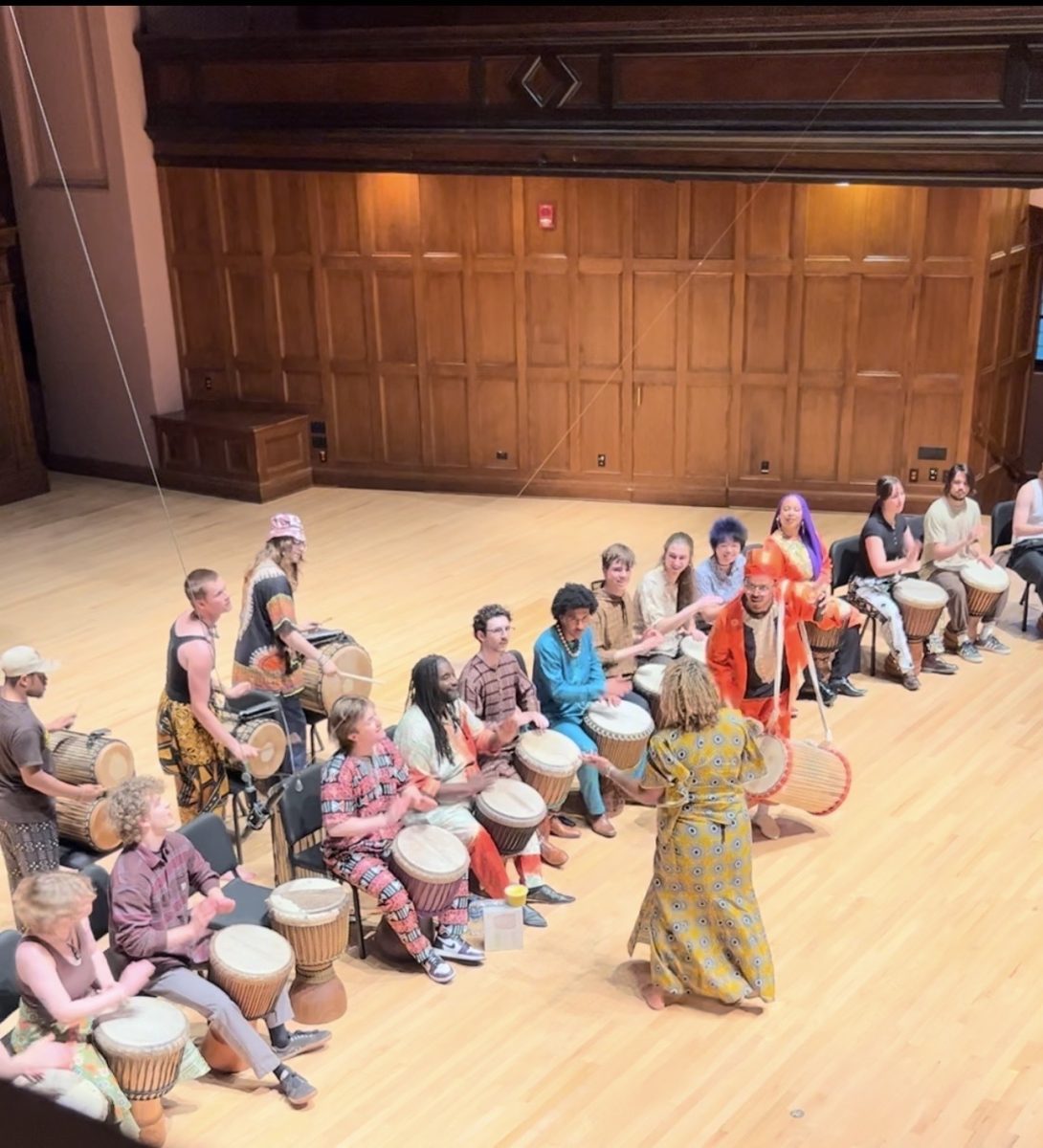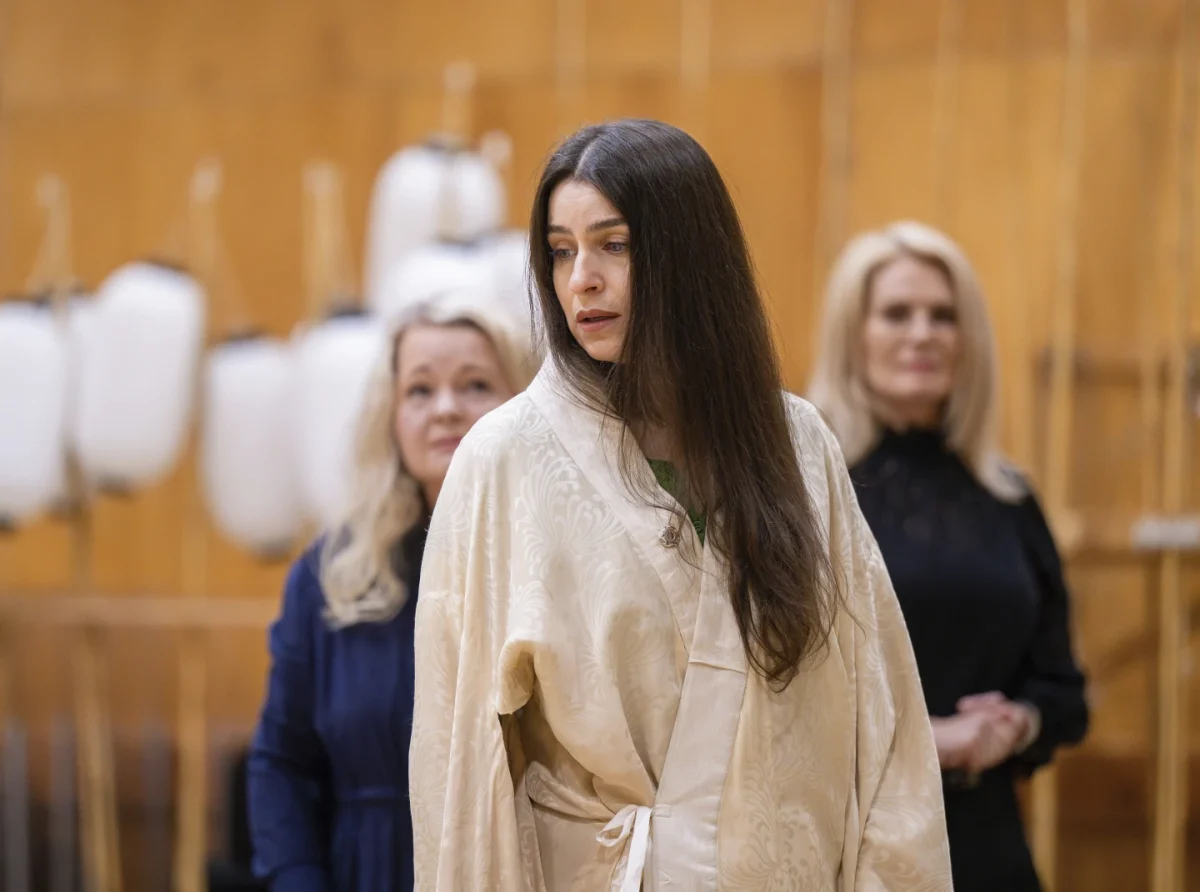I began classical voice lessons in seventh grade. What started as a means to get into my local performing arts high school for musical theater quickly evolved into a deep passion for classical music. I applied to study under the classical voice track instead, which I loved. Singing classical repertoire was a brand new world: I got to explore new methods of learning music, study music theory, and sing in languages I had never spoken before.
By the time I reached my senior year of high school, I was enrolled in six periods of voice classes — the maximum amount possible. So, when it came time to apply for colleges, I knew what I wanted to do. I applied to six music schools to continue my study of voice performance, including the Juilliard School, Manhattan School of Music, and Oberlin. I favored Oberlin because I knew it had an undergraduate-only program. I knew I would get individualized training and have wider access to resources I needed to develop as a young singer. What was also appealing about Oberlin — which my parents made sure to point out — is that there is a college attached to the conservatory. They wanted desperately for me to pursue a double degree of some kind, just in case music didn’t work out. Ignoring them, I applied and was accepted into the Oberlin Vocal Performance class of 2026.
My first semester at Oberlin was a wild combination of highs and lows. I met and quickly became friends with the other 10 voice students admitted that year. I loved my professors, and I found my courses both challenging and engaging. Along with this, I experienced a massive learning curve and all the imposter syndrome a young tenor could handle, but I reassured myself that I was just adjusting to college life and my new academic environment.
Second semester was more of the same. My 23-credit hour schedule limited my time to socialize, but I told myself it was worth it for the rigorous training I was receiving. It wasn’t until after spring break that I began to question my decision. After a week-long romp with my friends in Washington, D.C., it was time to get back on my vocal studies schedule — and I wasn’t ready for it. I spiraled into a then-undiagnosed depressive episode, dreading the work I had ahead. I couldn’t go back to my busy schedule and theory classes I didn’t like and German text I had to memorize. I broke down. I wanted to do something else.
My parents, concerned about my mental state, suggested I take some college courses. It is not uncommon for voice students to be double-degree, but I simply didn’t have it in me. I was already being crushed by the suffocating Conservatory schedule, and I definitely didn’t have the time management skills that double-degree requires. It was then that I had to begin asking myself the question all musicians ask themselves at one point or another: “Do I really like what I’m doing?”
I eventually recovered from my depressive episode, but the question still lingered. I had begun this journey in seventh grade, when it was new and everyone told me how good I was at it. It seemed logical to keep singing. It was a plan for my future that I was told I would be successful in. It had become my life, my defining characteristic. But as I grew into a new person with new interests and rapidly-declining mental health, that passion faded. Music wasn’t exciting me anymore. It grew repetitive and unemotional. The connection I once had to the repertoire faded, and I was left doing something I no longer wanted to pursue. I still loved opera, just not performing it.
So without any definitive plans, I continued my second year at Oberlin as a Voice Performance major — and hated it. Don’t get me wrong, I deeply loved the faculty and friends I had made in the Conservatory, but I knew it wasn’t for me. When I thought about my future, I didn’t see myself performing classically. I discussed this with my wonderful and ever-supportive voice teacher, and he reassured me that it is normal to have these thoughts. He also said that he would support me in whatever endeavors I chose to pursue. That was exactly what I needed to hear in order to begin exploring my options in the College.
The hardest part of leaving your musical studies is the loss of identity. I was afraid not just of disappointing and being looked down upon by my professors and classmates, but also by my family members. All of my friends and family had known me as Travis The Opera Singer, so to break the news that I wouldn’t be him anymore was terrifying. I couldn’t imagine the disappointment I was inflicting on my loved ones. Luckily, my parents were very supportive of my theoretical switch, but they didn’t want me to make any hasty decisions. One phrase my dad has always told me is, “Don’t run away from something, run toward the next thing.” So, I began to hunt for something to run to.
Having already accepted the fact that I could no longer stay in the Conservatory, I needed a major to pursue. One day as I was depressively doomscrolling on Instagram, I saw an ad that The Oberlin Review was hiring. I remember loving writing for my AP English classes in high school, and I decided to apply as a Production Editor. I thankfully got the job and LOVED it. The people I met in the Review office were, and still are, some of my favorite people on campus. I also found I adored reading through all the articles every week and was fascinated by the idea of journalism. I had never explored journalism as a viable career path, but knew I loved writing about things I am passionate about. I had found something to run to.
The process of switching divisions is complicated for Conservatory students. In order to transfer, you must have two College courses under your belt, passed with a B- or higher, and two recommendations from College professors. Well, virtually none of the classes I had taken as a Voice student met this criteria — my odds were not looking good. I met with the angel named Kelly Cassidy, manager of advising support in the Academic Advising Resource Center, and she helped talk me through what my transfer process would look like. Together we created a plan where, even as a Conservatory student, I could take exclusively College courses in order to start working toward a Creative Writing degree with an integrative concentration in Journalism and apply to transfer for fall semester 2024.
This semester has been a breath of fresh air. I feel interested and passionate about what I’m doing again, but most importantly I feel like I am moving toward a new passion and not away from an old life. I clung to my identity as a singer for so long that I let it define me. Only by letting go of that identity was I able to grow in other aspects of my life. I still hold all the love and appreciation for the art of singing, but instead of being in performances, I review them. I haven’t lost my identity as a musician; I have gained a new identity as a journalist, and I am finally at peace with that.








